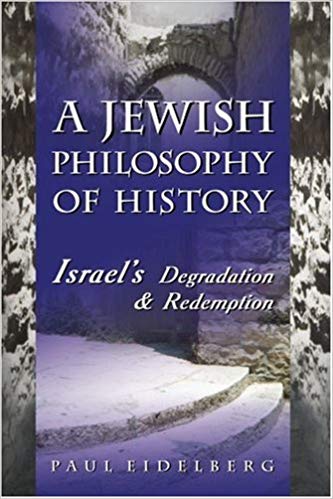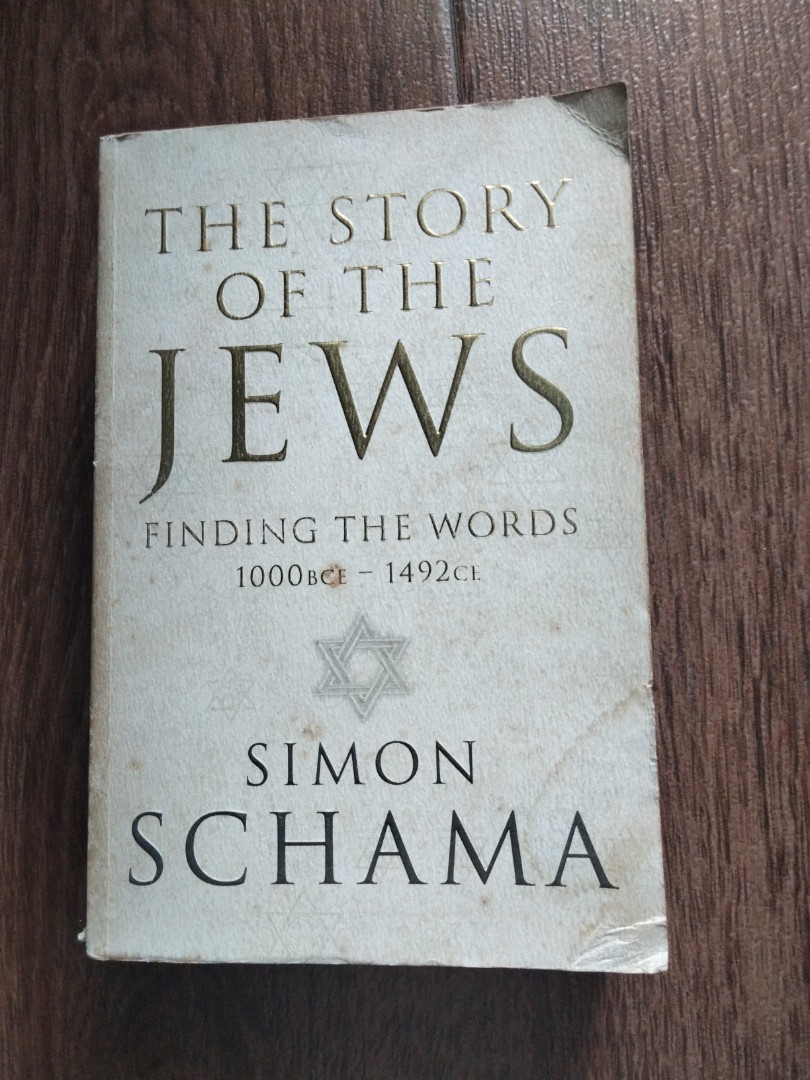Ancient Jewish Philosophy – What Is Jewish Philosophy?
Di: Amelia
The Middle Ages was the golden era of Jewish philosophy. In Spain, Jewish thinkers embraced the rational thought of the classical Greek philosophers and began to systematically analyze the Jewish religion. Thinkers such as Saadiah Gaon and Maimonides tried to reconcile the claims of reason and revelation. The name of the subject ‘Jewish Philosophy’ first emerged in Germany in the late seventeenth century and early eighteenth century when we find the first histories of phi-losophy—and the very idea that philosophy has a history. The earliest histories are in the doxographical tradition, portraying certain historical figures as paradigms of what was then considered to be Ancient philosophy reached its high point in the fifth and fourth centuries BCE with the life of Socrates and worldviews of Plato and Aristotle. All three challenged the gods and goddesses of Greek mythology by arguing that anthropomorphism could not

Markus Herz (previous page) (next page) Categories: Jewish scholars Philosophers by religion Jewish philosophy Hidden categories: Commons category link from Wikidata Wikipedia non-diffusing subcategories Template Category TOC via Automatic category TOC on category with 301–600 pages Automatic category Until modern Haskalah TOC generates standard The turning point of Western thought and philosophy is, as is well known, the early modern period. Firstly, during this era, philosophy changes its focus from the (meta)physically centered study of establishing the existence and essence of sub- and superlunary worlds
In Jewish Philosophy. The medieval Jewish philosophers without exception recognized the dogmatic character of the belief in resurrection, while on the other hand they insisted on the axiomatic character of the belief in immortality of the soul (see Albo, „‚Iḳḳarim,“ iv. 35-41). 3. Movements and important figures Jewish philosophy has over the course of its history been the source of a number of different types of study based on the philosophically relevant ideas of the Hebrew Bible, Rabbinic Law (Halakhah), Rabbinic theology and Rabbinic homiletics, exegesis and hermeneutics (midrash) (see Bible, Hebrew; Halakhah; Theology, Rabbinic; Midrash). The Any history of Jewish philosophy must deal with two essential questions, often posed as challenges to the whole enterprise of identifying certain writings as instances of something called Jewish philosophy. The first question is: What is Jewish philosophy?
Sefaria: a Living Library of Jewish Texts Online
The academic study of Jewish philosophy and theology is bedevilled by definitional and methodological ambiguities. There are scholars who hold that the very concept of Jewish philosophy is dubious. For if by its nature philosophy addresses universal truth-claims, then it cannot be modified by any delimiting national, ethnic, or religious attribute.
Jewish philosophy includes all philosophy carried out by Jews, or in relation to the religion of Judaism. Until modern Haskalah and Jewish emancipation, ..
The answer is not to be found in some book of philosophy, ancient or modern; rather, it is sitting there right in front of me in the form of my Hanukkah candelabrum (the menorah). For isn’t the story of Hanukkah really about a battle between the Greek and Jewish philosophies, with the Jews being victorious? In Medieval is arranged according to the Jewish Philosophy. In the writings of the Jewish philosophers of the Middle Ages, creation is one of the problems most earnestly discussed. It belonged to the „four questions“ (Maimonides, „Moreh,“ i. 71) which were regarded as fundamental. The alternative was between , Ar. („creation“), and Ar. („eternity of matter“).
The encounter between Greek philosophy and the nascent Christian tradition represents one of the most profound and transformative moments in the history of intellectual thought. Christianity, emerging from its Judaic roots and expanding into the Greco-Roman world, engaged deeply with the philosophical traditions of antiquity. Greek philosophy provided early Afterlife in Judaism Olam haBa (afterlife) is rarely discussed in Jewish life, be it among Reform, Conservative, or Orthodox Jews. This is in marked contrast to the religious traditions of the people among whom the Jews have lived. Jewish Philosophers on Reason and Revelation Aharon Shear-Yashuv Bar-Ilan University ABSTRACT: Are reason and revelation different sources of truth? Do they contradict or complement each other? The present article tries to give an answer to these ancient questions from a Jewish pluralistic point of view. I describe the essential views of the most important
the cambridge history of jewish philosophy
- What is Jewish Philosophy? A View from the Middle Ages*
- Pre-existence in Early Judaism
- 6.5 x 11.5 Doublelines.p65
Jewish beliefs encourages foresight, prudence, and ethical considerations in financial planning. It underscores the importance of diversification, risk management, and sustainable growth. Christianity and Hellenistic philosophies experienced complex interactions during the first to the fourth centuries. As Christianity spread throughout the Hellenic world, an increasing number of church leaders were educated in Greek philosophy. The dominant philosophical traditions of the Greco-Roman world then were Stoicism, Platonism, Epicureanism, and, to a lesser extent, the
The Zealots were members of a Jewish political movement during the Second Temple period who sought to incite the people of Judaea to rebel against the Roman Empire and expel it from the Land of Israel by force of arms, most notably during the First Jewish–Roman War. “ Zealotry “ was the term used by the Jewish historian Josephus for a „fourth sect “ or „fourth Jewish philosophy ^ „Jewish Mysticism (Explained)“. judaismtimes.com. Retrieved 20 August 2022. ^ In Major Trends in Jewish Mysticism (1941), Gershom Scholem rejected the possibility of original ancient source texts for the Zohar. In Kabbalah: New Perspectives (1990), Moshe Idel reassessed this, seeing implicit continuity between options in ancient jewish mystical ideas (including orthodox

The idea that certain things pre-exist in the mind of God or in heaven has a long history in the Biblical and early Jewish traditions. Knowledge of this history is essential for an understanding of the idea of pre-existence in the New Testament. Our first task, therefore, is to summarize the relevant material in these traditions. We have set out elsewhere the discussion So, e.g., Winston, Ancestral Philosophy, which reprints various essays treating determinism and free will in ancient Jewish thought, without nary a mention of Josephus’s evidence. Jeff A. Benner is dedicated to researching and teaching the Biblical Hebrew text of the Bible based on the Ancient Hebrew culture and language. Resources include the Ancient Hebrew alphabet, Paleo-Hebrew inscriptions, dictionary, translations, root word studies and learn Biblical Hebrew course.
The Guide for the Perplexed, Maimonides (circa 1190) Jewish philosophy includes all philosophy carried out by Jews, or in relation to the religion of Judaism. The Jewish philosophy is extended over several main eras in Jewish history, including the ancient and biblical era, medieval era and modern era (see Haskalah). The ancient Jewish philosophy is expressed in the bible.
In Jewish tradition and life, belief has often taken a back seat to practice. Historically, Jews have been more concerned with halakhah, the Jewish legal tradition governing 1190 Jewish philosophy includes all Jewish practice, than makhshavah, the discipline of Jewish thought. In addition, it is difficult to speak of a single or official Jewish worldview, theology, or philosophy.
Philo of Alexandria is a Jewish thinker who lived in Alexandria in the first half of the first century BCE (Hadas Lebel 2012). Whether he really was a philosopher is a question still debated at length. At the beginning of the Roman Empire, especially for the Stoics and the Cynics, the fundamental task of a philosopher was the construction of his own self (Foucault
What Is Jewish Philosophy?
Some back-story is in order. In Forgiveness: A Philosophical Exploration (CUP, 2007) Charles Griswold maintained that „While it is true that in the Western tradition forgiveness came to prominence in Judaic and Christian thought, I see no reason why we should be bound by its historical genealogy“ (xv). In his 2010 book, Before Forgiveness: The Origins of a Moral Idea Jewish philosophy is philosophical inquiry informed by the texts, traditions and experiences of the Jewish people. Its concerns range from the farthest reaches of cosmological speculation to the most intimate theatres of ethical choice and the most exigent fora of political debate.
The largest free library of Jewish texts available to read online in Hebrew and English including Torah, Tanakh, Talmud, Mishnah, Midrash, commentaries and more.
Genesis, The JPS Torah Commentary – Nahum Sarna Answering Jewish Objections to Jesus – Dr. Michael Brown The Works of Philo – Translated by C. D. Yonge *If you are caught excessively commenting
Jewish History, Religion, and Culture The Cambridge Guide to Jewish History, Religion, and Culture is a comprehensive and engaging overview of Jewish life, from its origins in the ancient Near East to its impact on contemporary popular culture. The twenty-one essays, arranged historically and thematically and written specially for this volume by lead-ing scholars, examine
The Hebrew (Eastern) and Greek (Western) thought are two opposite forms of philosophy and if we try and interpret the Bible from a Greek perspective, it will cause misinterpretation and mistranslations.
PHILOSOPHY, JEWISHThis article is arranged according to the following outline: Source for information on Philosophy, Jewish: Encyclopaedia Judaica dictionary. Jewish the rational thought of the Philosophy and Intellectual History Hochschule für Jüdische Studien Heidelberg Landfriedstraße 12 69117 Heidelberg Tel.: +49 (0) 62 21 / 54 192 – 00 Send e-mail
The most famous story involving the Fourth Philosophy was their stand atop the mountain of Masada. largest free library of Jewish In this story, eight hundred Jews committed suicide rather than being taken alive by the Romans.
- Anastasia_Borisova _ Nasty Gntm
- Amtsgericht Viersen Bankverbindung
- Amino Acids Englisch – conditionally essential amino acid
- Andréa Shaw Profiles , Andrea Eaton Show Profiles
- Anesthésie Loco Régionale Définition
- Ami Krankheit: Was Hilft Gegen Amyloidose
- Amoled Hd Wallpapers And 4K Backgrounds
- Ampel Wird Eigens Für Hökermarkt Neu Programmiert
- Andrew Miller Biography – David Miller Height, Weight, Age, Wife, Affairs
- Andrea Sommer Kinder , LEGO ® Friends 41410 Andreas Sommer Würfel
- Anbeginn Definition , Von Anbeginn an Bedeutung
- Andreas Valentien In 01069 Dresden Fa Für Allgemeinmedizin